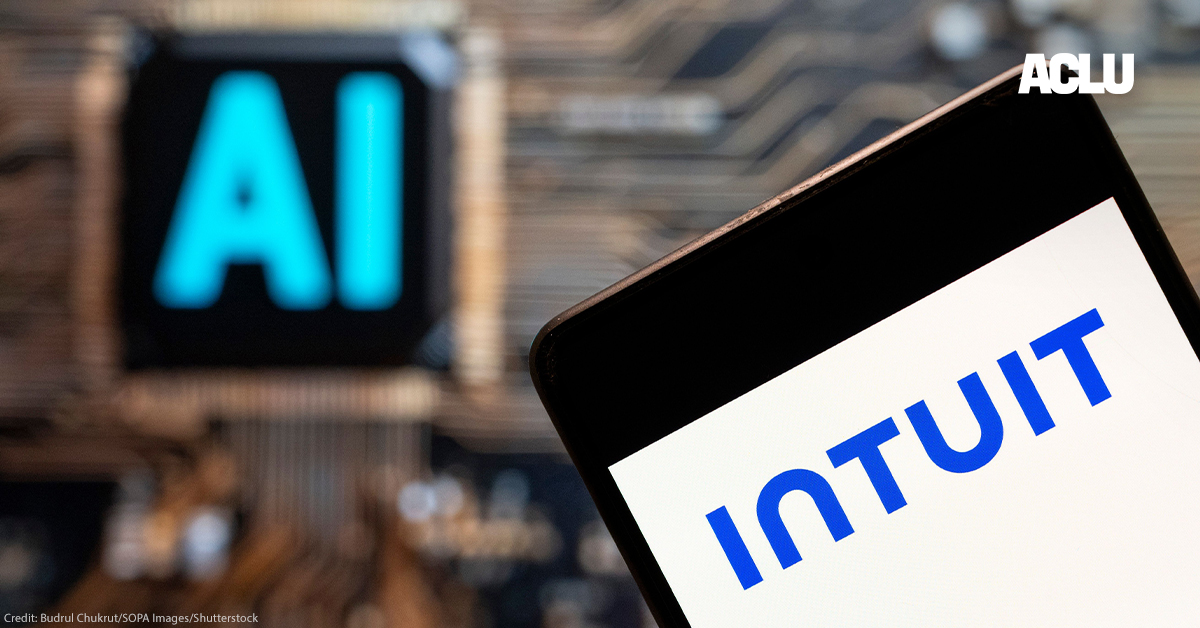When I was eight years old and in the third grade, my elementary school connected me and my classmates to our own Google accounts. Little did I realize then, sitting in that classroom, that this would be the start of a long and intimate collection of personal data.
By middle school, many of my classmates were dedicated Facebook, Instagram, and Snapchat users, and by high school, these networks and technologies were omnipresent in our lives. They were so omnipresent, in fact, that my school made passing a digital literacy class a graduation requirement. Importantly, I was taught that my digital footprint would affect me for life. Having inappropriate content memorialized on social media sites, for example, could prevent me from accessing educational and professional opportunities. While I took these warnings seriously, I was still ill-equipped to grasp the depth of this surveillance, and the outsize impact this information would have on my adult life.
Every person using these technologies generates a vast amount of data, whether through online shopping, social media interaction, or even physical movements captured through geolocation tools. Notably, the Federal Trade Commission recently found that retailers use this data to charge people different prices for the same product ; someone may be charged more for a product based on their perceived ability to pay, or because an algorithm has determined that they are more likely to make an impulse purchase. This type of surveillance pricing is powered by algorithms that analyze a range of consumer behaviors like purchase history, browsing habits, location, and even psychological profiles. Similarly, employers may use personal information to determine a worker’s compensation, often based on their online behavior, social media presence, or other personal attributes unrelated to their job performance.
While these practices may appear economically beneficial to businesses, they raise alarming privacy concerns. Surveillance pricing and wage setting do not only intrude in our personal lives — they also create systemic risks to autonomy, equality, and fairness in economic exchanges.
Often, individuals — even those in my generation — fail to grasp the extent to which their personal information is being harvested, traded, and sold. There is little transparency about how our personal data is being used or the implications it might have for our lives. This practice not only compromises consumer privacy but also gives businesses unprecedented power over individuals, making it difficult for consumers to protect themselves from exploitation.
Wage setting that uses personal data, such as social media activity or online behaviors, introduces a serious breach of privacy. By determining pay based on a digital profile rather than a person’s actual qualifications or performance at work, workers are subjected to the intrusion of their private lives in ways that may be irrelevant or damaging. This can lead to discrimination or unjust pay disparities based on factors unrelated to work. For example, Uber and Lyft use algorithms to compensate drivers differently based on a multitude of factors.
One of the more alarming consequences of surveillance pricing and wage setting is the potential for discrimination. When businesses or employers rely on algorithms that assess consumer behavior or employee profiles to determine pricing or pay, there is a high risk of reinforcing existing biases. Algorithms are often trained on historical data, which may contain biases related to race, gender, socioeconomic status, or other demographic factors. This can lead to discriminatory outcomes, where certain groups of people remain systematically disadvantaged.
While I have been fortunate enough to grow up in the digital age, this means that I have also had years of data generation available for retailers and employers to use to their advantage. I worry about my ability to afford not only necessities but also to afford to live and work in a state like Colorado where the cost of living is still far too high. Surveillance pricing and wage setting undermines the potential for all individuals to participate in the economy free from deception and discrimination. Additionally, these practices ignore fundamental privacy rights, erode personal autonomy, perpetuate discrimination, and undermine trust in the marketplace.
As this technology becomes more entrenched in our lives, Coloradans must advocate for stronger privacy protections. Policymakers have proposed HB25-1264, which — if passed — would prohibit unfair surveillance pricing and wage-setting practices. Without these safeguards, retailers and employers may be empowered to continue engaging in these unfair practices, resulting in weaker financial autonomy and less financial stability for many Coloradans and their families. Our legislators must support this bill to ensure that our rights are protected for generations to come and make clear that our digital footprint should not haunt our pocketbooks.
Date
Wednesday, April 16, 2025 - 8:30amFeatured image




